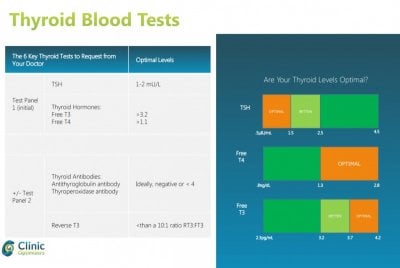
I see a LOT folks asking basic question reference thyroid labs.
Here is an article that does a great job of distilling it down.
https://www.restartmed.com/normal-thyroid-levels/
Other interesting articles here also.
I also like:
http://www.tiredthyroid.com/optimal-labs.html
Again, other interesting articles here also.
SUGGEST MAKING THIS A STICKY!!!!!!
Last edited by a moderator:
















